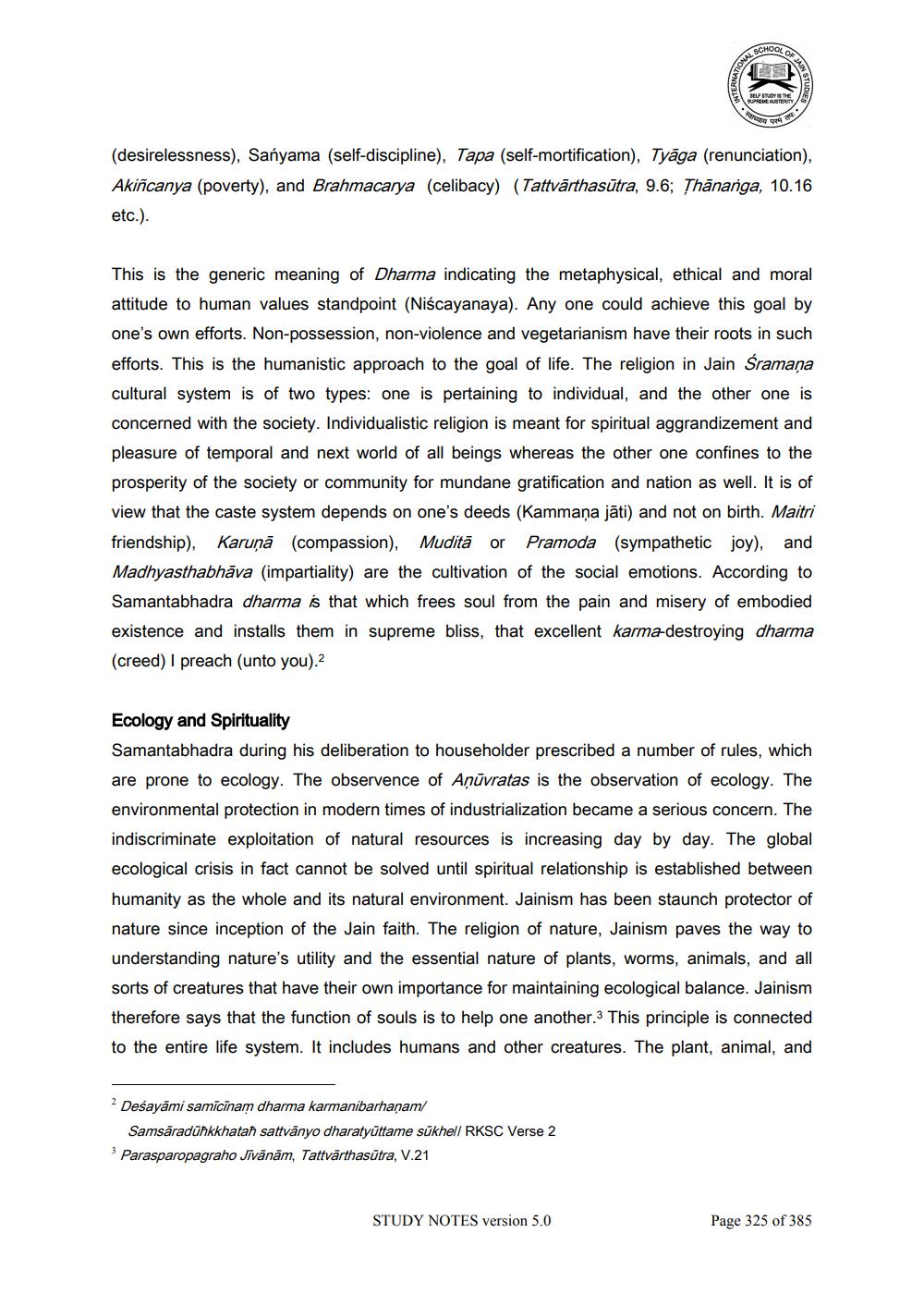________________
(desirelessness), Sanyama (self-discipline), Tapa (self-mortification), Tyāga (renunciation), Akiñcanya (poverty), and Brahmacarya (celibacy) (Tattvārthasūtra, 9.6; Thānanga, 10.16 etc.).
This is the generic meaning of Dharma indicating the metaphysical, ethical and moral attitude to human values standpoint (Niścayanaya). Any one could achieve this goal by one's own efforts. Non-possession, non-violence and vegetarianism have their roots in such efforts. This is the humanistic approach to the goal of life. The religion in Jain Śramaņa cultural system is of two types: one is pertaining to individual, and the other one is concerned with the society. Individualistic religion is meant for spiritual aggrandizement and pleasure of temporal and next world of all beings whereas the other one confines to the prosperity of the society or community for mundane gratification and nation as well. It is of view that the caste system depends on one's deeds (Kammaņa jāti) and not on birth. Maitri friendship), Karuņā (compassion), Muditā or Pramoda (sympathetic joy), and Madhyasthabhāva impartiality) are the cultivation of the social emotions. According to Samantabhadra dharma is that which frees soul from the pain and misery of embodied existence and installs them in supreme bliss, that excellent karma destroying dharma (creed) I preach (unto you).2
Ecology and Spirituality Samantabhadra during his deliberation to householder prescribed a number of rules, which are prone to ecology. The observence of Aņūvratas is the observation of ecology. The environmental protection in modern times of industrialization became a serious concern. The indiscriminate exploitation of natural resources is increasing day by day. The global ecological crisis in fact cannot be solved until spiritual relationship is established between humanity as the whole and its natural environment. Jainism has been staunch protector of nature since inception of the Jain faith. The religion of nature, Jainism paves the way to understanding nature's utility and the essential nature of plants, worms, animals, and all sorts of creatures that have their own importance for maintaining ecological balance. Jainism therefore says that the function of souls is to help one another. This principle is connected to the entire life system. It includes humans and other creatures. The plant, animal, and
2 Deśayāmi samīcīnam dharma karmanibarhanam/
Samsāradühkkhataħ sattvānyo dharatyüttame sūkhell RKSC Verse 2 Parasparopagraho Jivānam, Tattvärthasutra, V.21
STUDY NOTES version 5.0
Page 325 of 385




